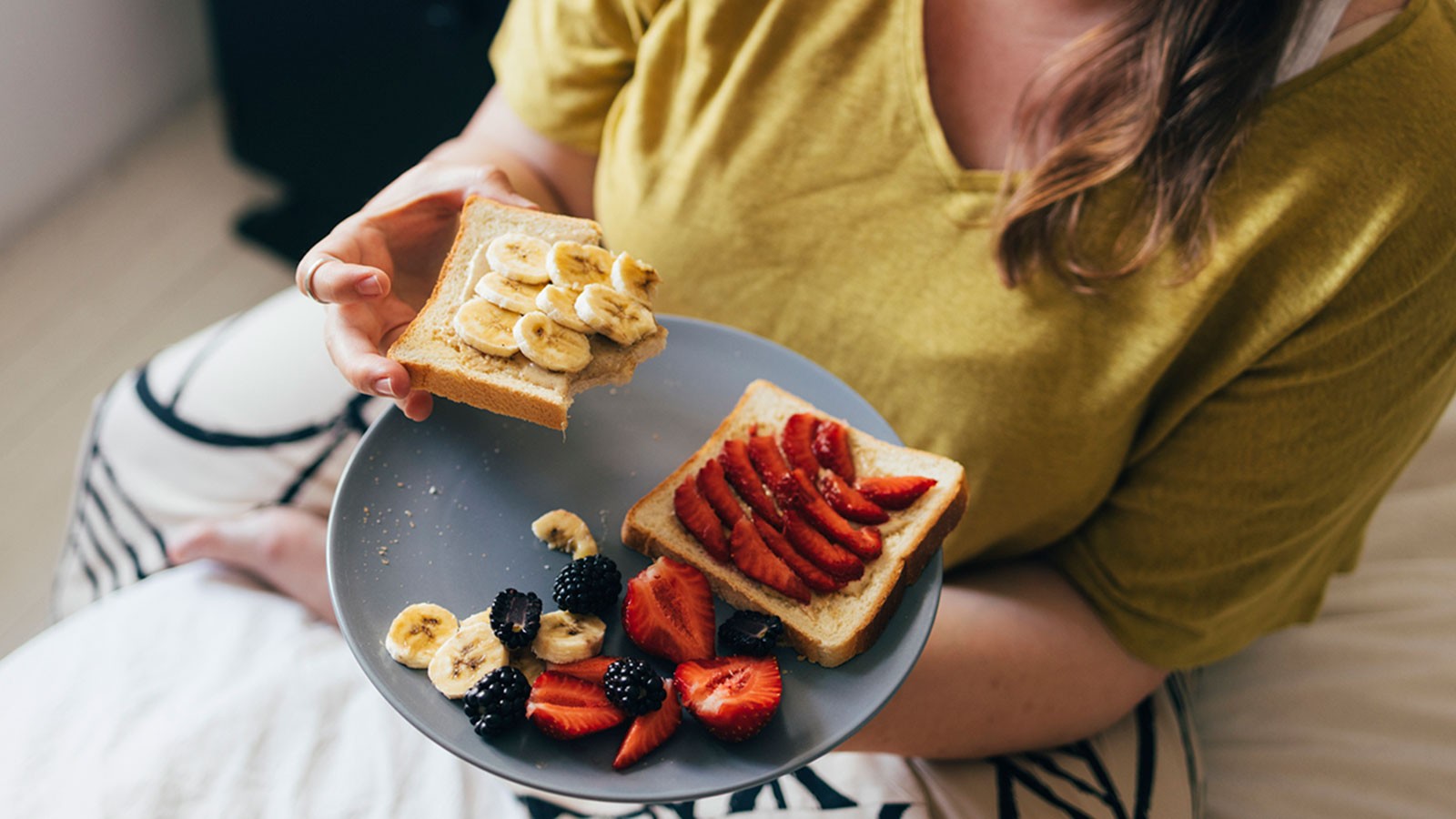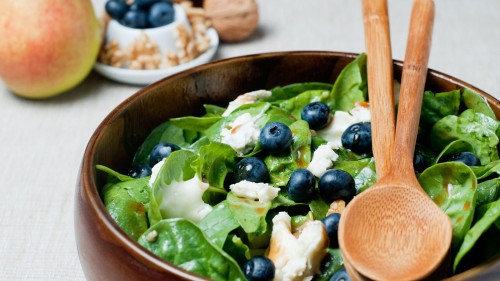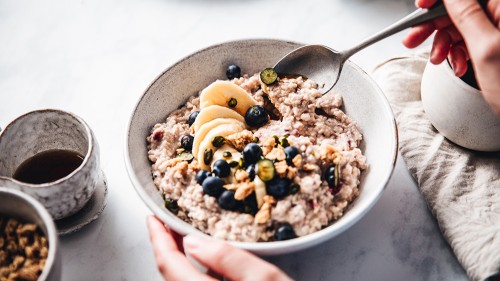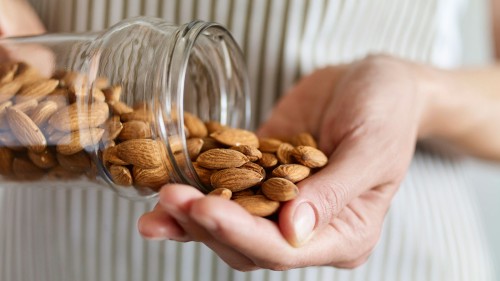Feeling Hungry When Trying to Lose Weight? Avoid These 5 Mistakes
Published on August 6, 2022
Medically Reviewed by Natalie Olsen, MS, RDN
Weight loss can feel like a battle against your appetite. In addition, some popular diet advice only works to make the process harder. Fortunately, evidence-based strategies can keep your hunger under control to help you achieve and maintain a healthier weight.


If you’re not confused about what makes a “healthy weight loss diet,” you must not be paying attention.
It seems like every day, another diet guru advises the public to forget everything they thought they knew about nutrition and take a new approach to weight loss.
Diet confusion makes it challenging to spot common-sense weight loss advice.
With so much conflicting information, it’s easy to see why many people struggle with stalled progress or yo-yo dieting.
However, by getting back to basics and avoiding these common diet mishaps, you can stay level-headed in the crazy world of diet culture.
Here are five mistakes worth crossing off your weight loss plan.
1. Slashing Your Portion Sizes
Many Americans would benefit from reducing their portion sizes, especially when eating out. (1)
But, if you’ve ever experimented with the celebrity-endorsed “baby food diet” or similar fads, you know first-hand that tiny portions are no fun. Those who attempt to eat like an infant are left with waning willpower and doomed to backfire.
Additionally, being too restrictive during the day may lead to uncontrollable eating in the evening. This “binge-restrict” cycle is damaging not only to your self-esteem, but can also affect your heart function and mood. (2)
Luckily, it turns out you can eat generous portions without gaining weight as long as you emphasize the right foods. (3)
The stomach and intestines have appetite sensors called mechanoreceptors. Mechanoreceptors work by triggering appetite hormones to promote a sense of fullness.
These sensors tell the brain when enough food is consumed based on how much the stomach stretches and the nutritional content of the food. (4)
Research shows that appetite sensors are more responsive when nutrition is abundant. Therefore, eating high-quality, whole foods with plenty of vitamins and minerals makes you feel full faster.
On the other hand, consuming large portions of empty calories (like processed foods) may cause you to feel unsatisfied until you overeat. (4)
Ultimately, eating nutrient-dense whole foods will help you feel full while losing weight.
Here are some high-volume meal adjustments you can try:
- Add crunch to salads and sandwiches with extra raw veggies such as celery, carrots, and cucumbers.
- Cook pasta dishes with spinach, broccoli, peppers, or chopped tomatoes.
- If you have a prepared frozen meal, steam a side of frozen veggies to bulk it up.
- Load up sandwiches with a heap of lettuce.
- Mix applesauce, chopped fruit, berries, or canned pumpkin into oatmeal or yogurt.
- Prepare broth-based soups and stews (instead of creamy versions) with extra vegetables.
Summary
Portions that are too small may not stretch your stomach enough to provide a sense of fullness. In addition, highly processed foods with little nutrition are easy to overeat as they don’t trigger a fullness response as quickly. Instead, whole, nutrient-dense foods help fill you up without exceeding your body’s needs.
Dig Deeper: Easy and Tasty Ways to Eat More Vegetables
2. Forgoing Fruits
Fruit is a win-win because it satisfies a sweet tooth while supporting weight loss goals.
There’s a common misconception that fruit is “too high in sugar.” Focusing on whole fruit with naturally occurring sugar is suggested over consuming added sugars in processed foods.
For most people, regular fruit intake is associated with a healthier body weight. (5)
Fresh fruit has a low-calorie density, meaning there aren’t a lot of calories relative to the weight of food.
Because fruit has a high water content, it can look and feel like a large volume of food without actually providing a lot of calories compared to other food groups (like the same-sized portion of pasta or cheese). (6)
Fruit is also high in fiber, which boosts satiety and is good for digestion. (5, 7)
In addition, fruit is filled with micronutrients such as vitamins and minerals and beneficial plant compounds that are good for body weight and disease prevention.
For example:
- Vitamin D, potassium, magnesium, and calcium are associated with weight loss. (5, 8)
- The polyphenols in fruit offer health-promoting anti-inflammatory and antioxidant effects.
- Plant sterols in fruit are thought to block fat absorption, which may aid weight loss. (5)
To help you feel full and stick to a weight loss plan:
- Snack on fruit between meals.
- Choose fruit for dessert.
- Use fruit as a side dish to fill up your plate (and your stomach).
You’ll feel more satisfied with less calories when eating fruit. (6)
Fruit is also a tasty alternative to other treats.
Summary
There’s no need to shy away from fresh fruit while trying to lose weight. Despite its sugar content, fruit is high in water and fiber, which support weight loss goals.
Dig Deeper: The Healthiest Fruits and Vegetables You Should Eat Daily
3. Skipping (Or Skimping On) Breakfast
While many people prefer to save their morning calories for later, studies suggest you’re actually better off shifting food intake to the earlier half of the day.
The old adage, “eat breakfast like a king, lunch like a prince, and dinner like a pauper,” holds true in modern research on weight gain and metabolism. (9)
Both rodent and human studies show that daytime eating reduces body weight compared to eating in the evening.
In one 12-week study, women were randomized to eat the same number of calories, with one group eating a large breakfast and the other a small breakfast.
The large-breakfast group lost 5.1 kilograms (11.2 pounds) more than the small-breakfast group despite consuming the same total calories. (9)
Experts suspect that the connection between eating early and weight loss has to do with circadian rhythm, or the sleep-wake cycle.
Eating a bigger breakfast helps suppress appetite for the rest of the day, leading to long-term eating habits that favor weight control. (9)
If you’re not used to eating early, adjusting to the change can take some time.
- Start by setting an eating cutoff time of about 2–3 hours before bed to minimize late-night eating.
- Then, have a small snack or plan for an earlier lunch when you wake up.
Eventually, you’ll notice that your body craves food earlier in the day, and you aren’t as tempted by late-night snacks.
Summary
Eating breakfast regularly, and making it the biggest meal of the day helps set the stage for healthy body weight.
Dig Deeper: Best Foods and Drinks for a Healthy Breakfast
4. Not Including Protein in Every Meal
Protein is more filling than carbohydrates or fat, making it essential for appetite control. (10)
Although you might think you’re doing yourself a favor by having oatmeal for breakfast and a salad for lunch, forgetting to add protein to your plate can leave you unsatisfied and vulnerable to unhealthy food cravings later in the day.
Instead, try these simple ways to get protein at each meal:
- Breakfast: Add some cottage cheese or Greek yogurt as a side with oatmeal, try a veggie and cheese omelet, or add a scoop of protein powder to a frozen fruit smoothie.
- Lunch: Add chicken, beans, or tuna to a salad or wrap sandwich, or roll up some cold cuts with cheese and lettuce.
- Dinner: A tofu and veggie stir fry, chicken or pork kebabs on the grill, or chili with beef, beans, and corn ensure a protein-packed supper.
In addition to helping you to feel full, including 25 to 30 grams of protein at each meal helps prevent muscle loss. (10)
And holding onto your muscle means you burn more calories at rest, making it easier to maintain a healthy weight.
Summary
Protein supports weight loss by promoting satiety and muscle mass. Have some at every meal to help lose weight and stay strong.
Did Deeper: Nutritious Protein-Rich Foods That Offer More
5. Saving up for “Cheat Days”
“Cheat days” are a common feature of diet culture that encourages a toxic cycle of restriction and bingeing.
A typical cheat day means severely reducing food intake to prepare for an out-of-control day of hedonistic eating.
As a result, for those trying to lose weight and develop a healthy relationship with food, cheat days are probably not the best method.
While there’s nothing wrong with taking time off from focusing on food, purposely overeating or seeking out unhealthy food or alcohol in excess can quickly spiral into self-destructive behavior. (11)
Binges may reignite cravings for high sugar foods or reinforce the idea that you’re “missing out” when not overeating.
Nonetheless, there can be benefits from the occasional indulgence.
A meaningful weight loss journey takes time, and enjoying a holiday meal or social gathering along the way is absolutely necessary to keep your spirits up and create a lifestyle you can maintain.
Breaking away from your usual eating habits once in a while can also help break up the monotony of “dieting” and rev up your metabolism. (12)
But instead of feeling obligated to save up or repent for “cheating on your diet,” simply savor the moment, and move on. You shouldn’t resort to excessive exercise or starvation just because you had one high-calorie meal or day of excess.
However, if you find yourself getting off track too often, you may need to reevaluate why you’re so tempted to overeat. (11)
Perhaps your meal plan is too restrictive, or emotional eating is derailing your weight loss efforts.
Seeking support from a registered dietitian or therapist could help you get to the root of the problem and establish a healthier mindset around food.
Summary
Cheat days can foster an unhealthy relationship with food and may signal red flags that your weight loss plan isn’t serving you well.
The Bottom Line
Watch out for dieting gimmicks that tell you to eat tiny portions, avoid fruit, skip breakfast, or alternate lackluster meals with overindulgent “cheat days.”
After all, if you’re not fueling your body with adequate nutrition, you’re probably setting yourself up for failure in the long run.
Fortunately, weight loss doesn’t have to seem like such a chore when you switch the focus from eating less to eating better.
Making small swaps daily can improve your diet quality and establish healthier habits for life.
At WellnessVerge, we only use reputable sources, including peer-reviewed medical journals and well-respected academic institutions.
- Portion Size Versus Serving Size | American Heart Association:
https://www.heart.org/en/healthy-living/healthy-eating/eat-smart/nutrition-basics/portion-size-versus-serving-size - Is it Binge Eating Disorder (BED) or are you stuck in a vicious cycle? - MEDA - Multi-Service Eating Disorders Association:
https://www.medainc.org/bed-or-binge-restrict-cycle/ - Lifestyle Coach Facilitation Guide: Post-Core — More Volume, Fewer Calories:
https://www.cdc.gov/diabetes/prevention/pdf/postcurriculum_session6.pdf - Sensory neurons that detect stretch and nutrients in the digestive system - PMC:
https://www.ncbi.nlm.nih.gov/pmc/articles/PMC4930427/ - Higher Intake of Fruit, but Not Vegetables or Fiber, at Baseline Is Associated with Lower Risk of Becoming Overweight or Obese in Middle-Aged and Older Women of Normal BMI at Baseline - PMC:
https://www.ncbi.nlm.nih.gov/pmc/articles/PMC4408735/ - Slide show: Choose the right foods for weight control - Mayo Clinic:
https://www.mayoclinic.org/healthy-lifestyle/weight-loss/multimedia/low-calorie-foods/sls-20076175 - Dietary fiber: Essential for a healthy diet - Mayo Clinic:
https://www.mayoclinic.org/healthy-lifestyle/nutrition-and-healthy-eating/in-depth/fiber/art-20043983 - Effect of Vitamin D Supplementation on Weight Loss, Glycemic Indices, and Lipid Profile in Obese and Overweight Women: A Clinical Trial Study - PMC:
https://www.ncbi.nlm.nih.gov/pmc/articles/PMC6071442/ - Early Time-Restricted Feeding Reduces Appetite and Increases Fat Oxidation but Does Not Affect Energy Expenditure in Humans - PMC:
https://www.ncbi.nlm.nih.gov/pmc/articles/PMC6658129/ - Nutrients | Free Full-Text | Protein for Life: Review of Optimal Protein Intake, Sustainable Dietary Sources and the Effect on Appetite in Ageing Adults | HTML:
https://www.mdpi.com/2072-6643/10/3/360/htm - The Binge and the Brain - PMC:
https://www.ncbi.nlm.nih.gov/pmc/articles/PMC4919948/ - The Skinny on Cheat Days | Northwestern Medicine:
https://www.nm.org/healthbeat/healthy-tips/nutrition/the-skinny-on-cheat-days







